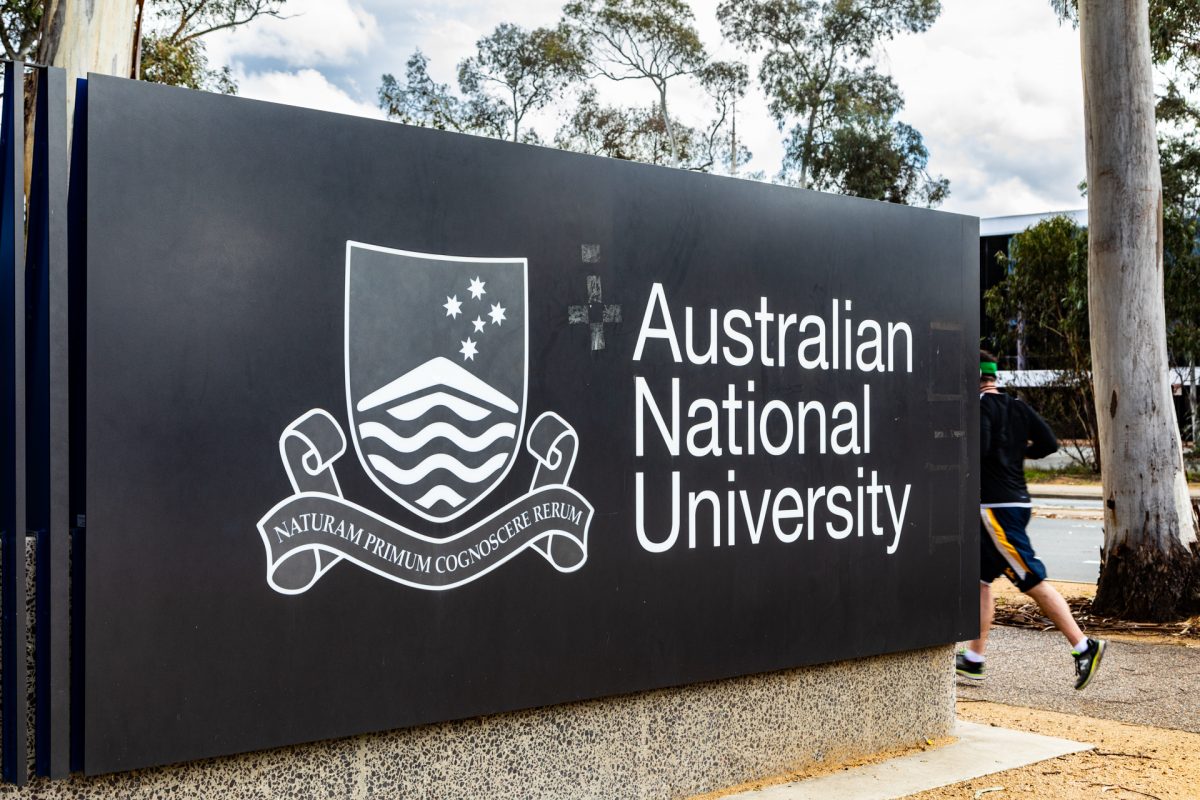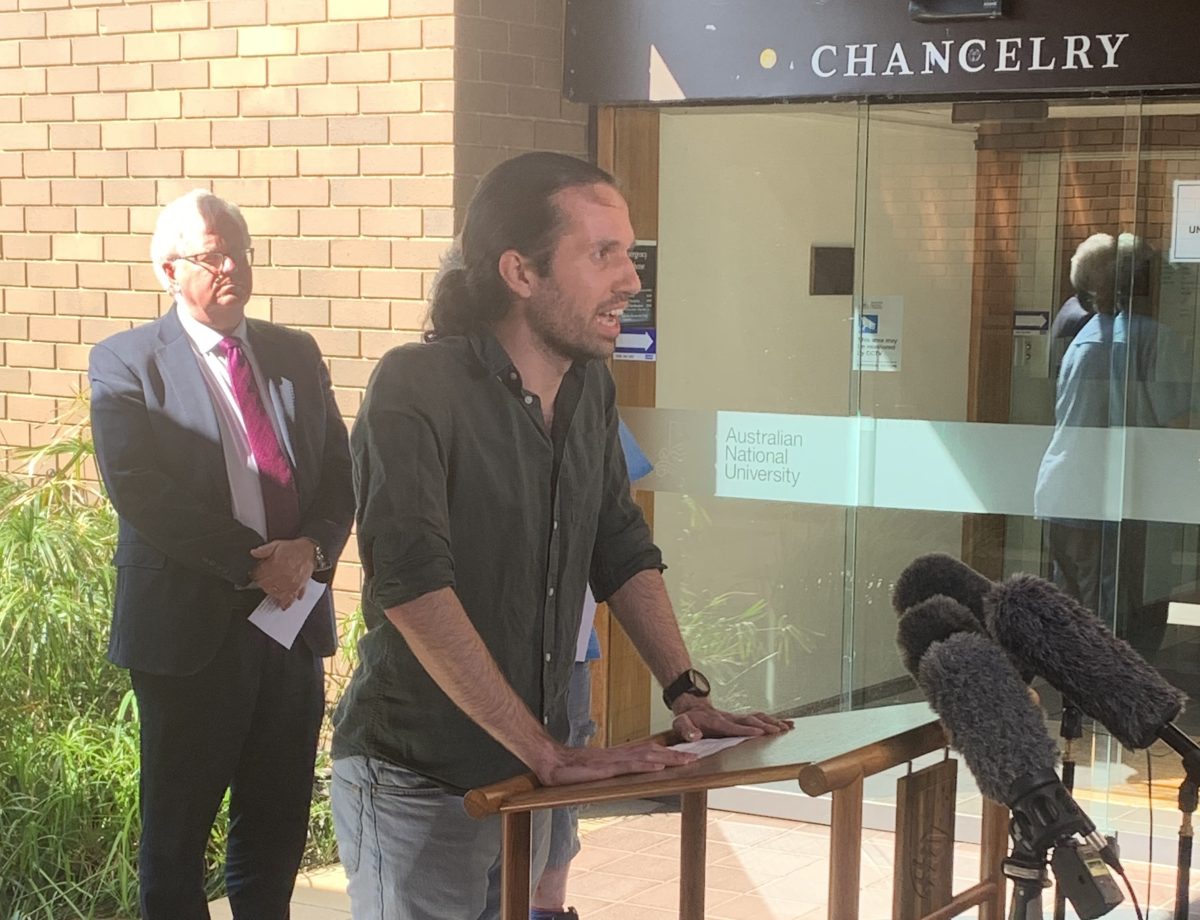
ACAT ruled in favour of the ANU when rejecting a claim by students to recoup their campus rent. Photo: Michelle Kroll.
Two Australian National University (ANU) students who were unable to return to their campus accommodation due to COVID-19 lockdowns have been rejected in their attempt to be repaid thousands of dollars in rent.
Kate Aston and Sigourney Vallis travelled to see their families in Sydney during the university’s winter break before the public health order in July 2021 shut the ACT off from NSW.
The pair had paid to live on campus at Burton and Garran Hall, but even though they said they could not return to the ACT, the ANU forced them to continue to pay for their accommodation.
Over 600 students were impacted in a similar way, the ANU Students’ Association has previously said.
Last year, Ms Vallis and Ms Aston took the university to the ACT Civil and Administrative Tribunal (ACAT) in an attempt to claim back what they had paid for their accommodation from when they could not return to the Territory – a total of about $10,000.
However, the tribunal’s Presidential Member Geoffrey McCarthy and Senior Member Kristy Katavic dismissed their applications.
The students had signed occupancy agreements lasting from February to December 2021 that required fortnightly payments of $245.
They had to agree that if they permanently vacated their room before the termination date, they would remain liable to continue paying.
Ms Vallis and Ms Aston were in Sydney when the city’s lockdown began in June 2021. This was originally set to end the following month, but was extended until November, which they said they could never have predicted.
Also, between around July and November 2021, the ACT Government’s pandemic laws meant that anyone wanting to leave Sydney for the Territory had to obtain an exemption.
Ms Vallis applied for an exemption to return to the ACT twice, but these were rejected by ACT Health because the department did not consider her to be a Territory resident and because she would have been travelling to the region to study.
She said she asked the ANU about stopping her occupancy agreement in July. The university did not formally reply until October, when it told her that being prevented from returning to campus by a public health order was not a reason to end her agreement.
Ms Aston did not apply for an exemption because she thought she would be unlikely to be granted one after what Ms Vallis told her.
The students did look at quarantining at an Airbnb property but were told it would not be appropriate to do so. ACT Health did not think university accommodation was appropriate for quarantining either.
The students argued it was “impossible” for them to return to the ACT for about 40 per cent of their occupancy agreement. When they were allowed back, their classes had finished and there was no reason for them to stay on campus.
Then-ANU deputy director of residential experience Scott Walker said the university had been doing all it could to allow students to return at the time but encountered difficulties with ACT Health.
For instance, it wanted students at its residential halls to be considered ACT residents, but the department didn’t agree.
The ANU fought Ms Vallis and Ms Aston’s claims in ACAT, arguing that by choosing to return to NSW then finding themselves unable to return, the students had created the “frustration” with their occupancy agreements.

The ANU Students’ Association president Ben Yates said the students who took the case to ACAT had “enormous courage”. Photo: James Day.
When ruling in favour of the ANU, the tribunal’s members said the students knew or should have known that accepting the residential accommodation might mean them becoming unable to travel from or return to it due to government regulations.
They also said after leaving the ACT, the students had the opportunity to return before the border was closed, but did not. There was no breach of contract by the ANU, the tribunal said.
“It took enormous courage for the students to speak out in this situation to seek a fair outcome,” ANU Students’ Association president Ben Yates said.
“We call on ANU to introduce greater flexibility and fairness for students in its occupancy agreement in the interests of student welfare.
“Students should be able to terminate in reasonable circumstances and not be put in a position of paying the university for services they don’t need, or in some cases can’t access, and which the university forces on them through its inflexible contracts.”
The ANU was contacted for comment, but said it would not be making any at this stage.





















